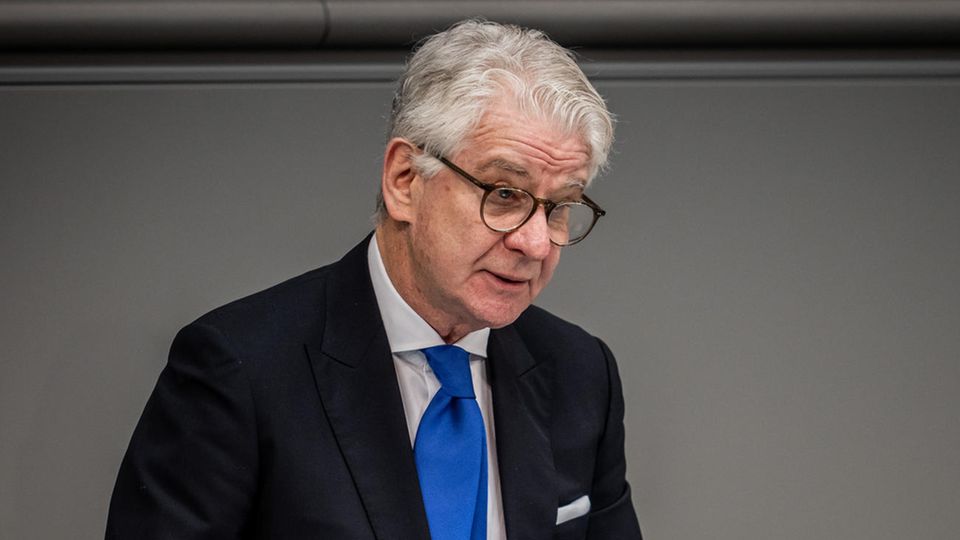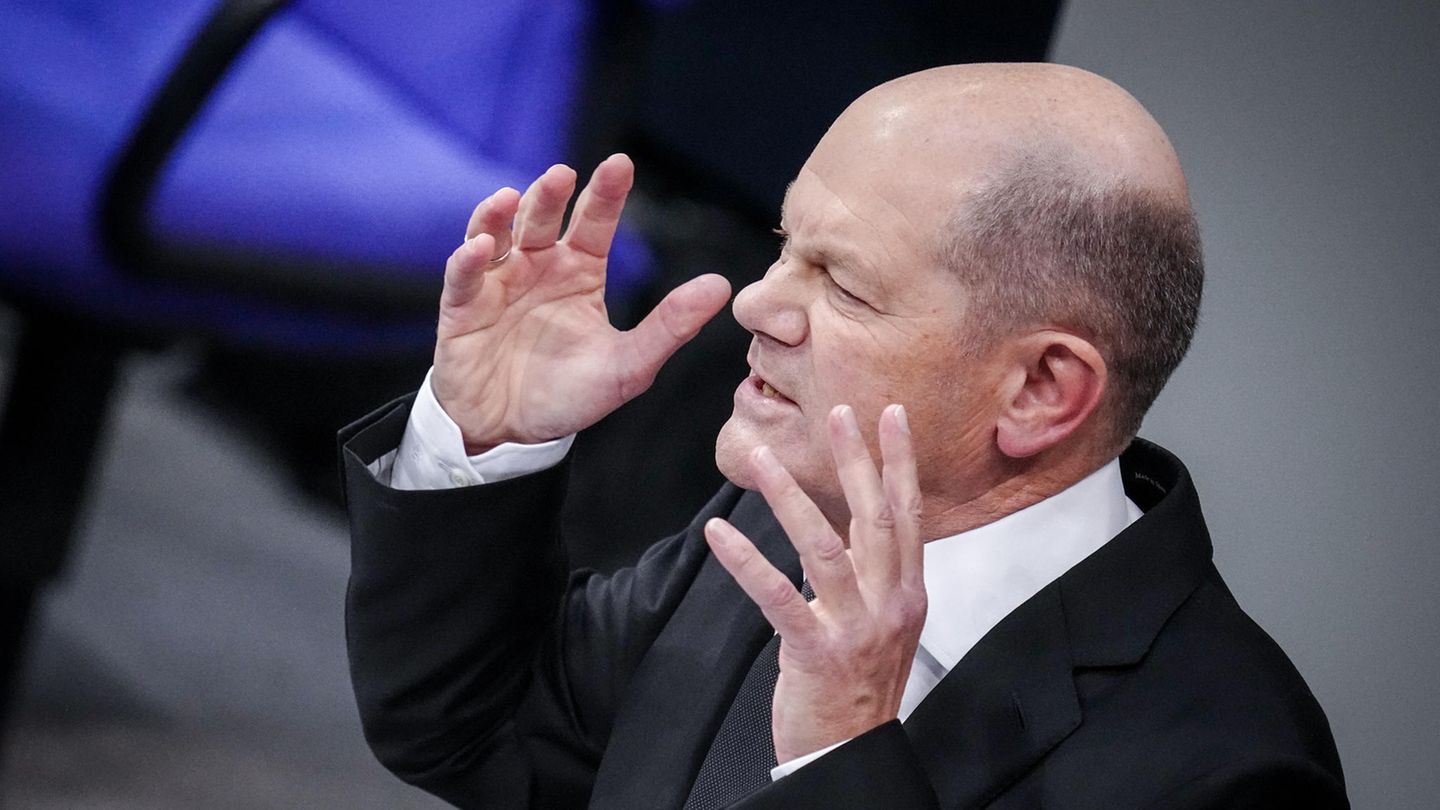Opinion
At the general debate, Olaf Scholz presented himself as a fighter: in front of him Friedrich Merz, with Boris Pistorius behind him, he put on a courageous performance. Even if the opposition leader gets bogged down, the Chancellor’s crisis is not yet over.
Olaf Scholz complained a lot this Wednesday in the Bundestag. The Chancellor even complained more than one might have expected after the opposition leader’s speech. Scholz would probably have complained just as much if Friedrich Merz had just talked about his last bike tour through the Sauerland. Scholz had simply decided to complain – and was only ostensibly directed at the opposition leader, but in reality, of course, at his own people: Look, I’m fighting!
Olaf Scholz, shaken by poor survey results and all sorts of criticism, is far from giving up. From the Chancellor’s chair on Wednesday he was able to initially follow Friedrich Merz, who would like to replace him, while behind him on the government bench, practically on the Chancellor’s neck, sat Boris Pistorius, who some in the SPD are wondering whether he would not be a better replacement for Scholz should. From this sandwich position, the Chancellor presented a positive performance record, accused Merz of not reading enough newspapers and called him a mimosa for his lack of ability to take criticism. The red-green-yellow part of the plenum was happy.

Merz gets lost between the gestures of chancellor and opposition leader
It was a solid general debate appearance by the Chancellor. It also appeared more powerful than that of his opponent because Merz really wanted to give a new type of general debate speech in which he alternated between a statesman, a government critic and a person refusing to cooperate. He called for more German-French initiative in European policy, criticized the fact that the traffic lights were strangling the economy, and then withdrew the hand he had supposedly extended to cooperate because the government didn’t want to take action anyway. Ultimately, Merz lost himself somewhere between the implied chancellor gesture and hardened opposition leadership.
What was striking in the debate was the traffic light’s attempt to create an impression of unity. It wasn’t just on the government bench that people presented themselves in demonstrative harmony: Interior Minister Nancy Faeser handed out cough drops to those sitting next to her, regardless of party affiliation, and Claudia Roth (Greens) lovingly stroked her state minister colleague Carsten Schneider’s (SPD) arm as he attended the AfD’s speech -Boss Alice Weidel threatened to despair. The speakers from the traffic light factions also supported the projects of the budget that was finally to be passed with a lot of noise and a lot of delay. For example, FDP parliamentary group leader Christian Dürr referred to Olaf Scholz’s speech three times: As the Chancellor already said… Only the FDP General Secretary Bijan Djir-Sarai flashed a Rhenish-cheerful reply to SPD parliamentary group leader Rolf Mützenich that the Liberals could also do well when dealing with tax money with black people.
And so the coalition will enter a phase of ambiguity for the next few weeks. Despite all the demonstrative solidarity: Of course, the big issue in every small circle is the Chancellor’s staying power and the SPD’s ability to endure. Olaf Scholz covered a few more meters on Wednesday in a marathon for the next federal election. In the near future, every appearance will be measured by how determined the Chancellor appears, how understandable he can make his policies, and how much trust his own people still have in him. On Wednesday they were still in line – but in politics it quickly turns into a gauntlet.
Source: Stern
I have been working in the news industry for over 6 years, first as a reporter and now as an editor. I have covered politics extensively, and my work has appeared in major newspapers and online news outlets around the world. In addition to my writing, I also contribute regularly to 24 Hours World.




